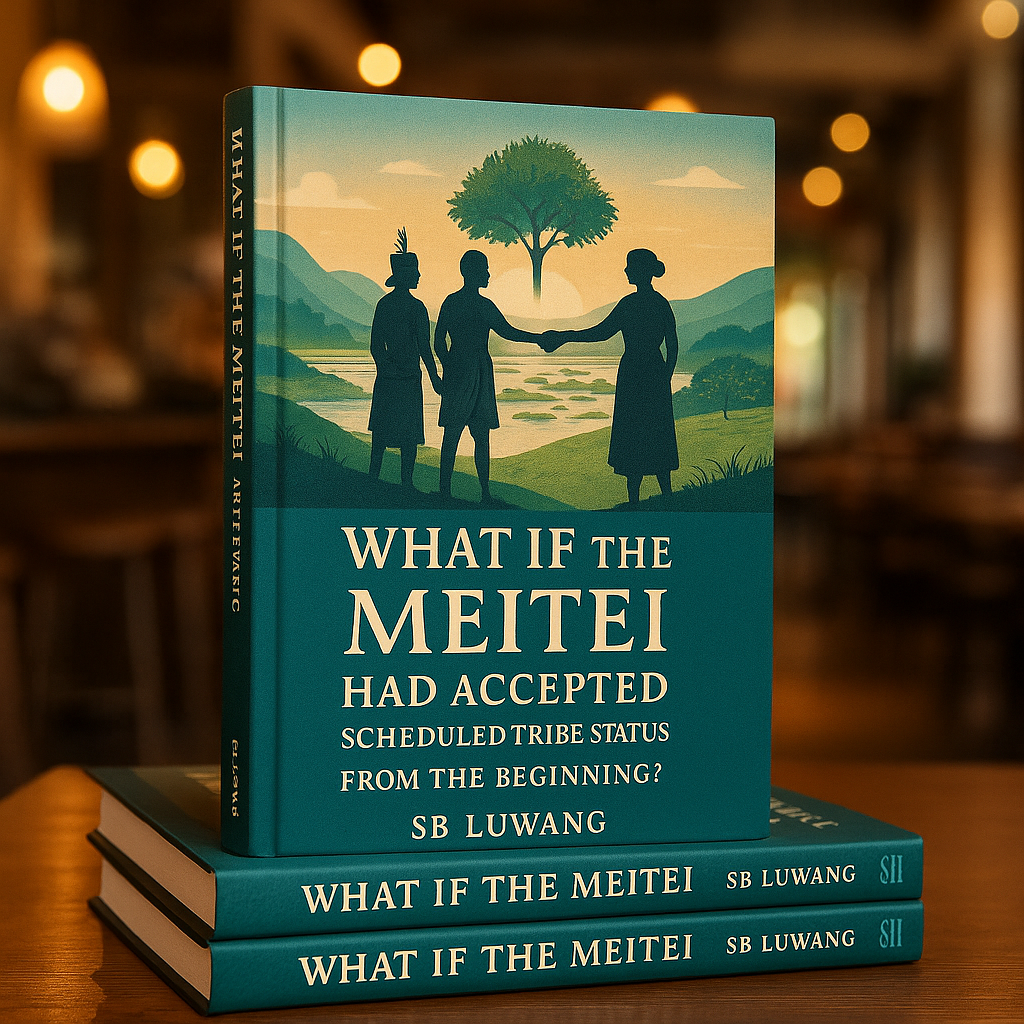📖 What If the Meitei Had Accepted Scheduled Tribe Status from the Beginning? by SB Luwang
This groundbreaking work of speculative history asks a daring question: What if the Meitei community had embraced Scheduled Tribe status at the dawn of independent India?
Through vivid narrative and historical simulation, the book reimagines Manipur from the 1950s to the present day, tracing how a single constitutional choice could have reshaped the destiny of an entire state. Each chapter explores an alternate trajectory — from early unity between hills and valley, to weakened insurgency in the 1980s, to faster integration into India’s liberalized economy in the 1990s, and to Manipur’s rise as a global tribal hub in the digital 21st century.
Key themes include:
-
Social inclusion and cultural pride: how ST recognition could have empowered the Meitei to preserve Sanamahi faith, Meitei Mayek script, and tribal heritage.
-
Politics and insurgency: why shared constitutional identity might have reduced valley-hill mistrust and weakened separatist movements.
-
Economic transformation: the role of ST benefits in creating a stronger middle class, urban integration, and Indo-Myanmar trade networks.
-
Modern identity: how digital globalization, sports, and cultural exports could have made Manipur a symbol of tribal modernity.
Written in a reflective yet accessible style, this book is more than a “what if” exercise — it is a mirror held to Manipur’s real struggles and a lantern for its possible futures. It argues that inclusion, unity, and recognition are not abstract ideals, but practical tools of stability and growth.
Whether you are a student of history, a policy thinker, or simply someone fascinated by Manipur’s cultural richness, this book offers fresh insights into how early choices echo across generations.






Reviews
There are no reviews yet.